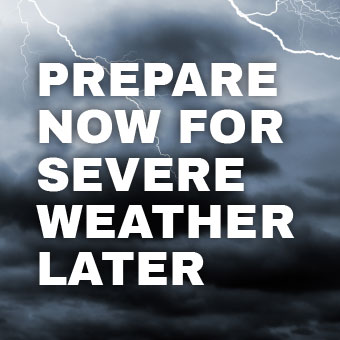Safety
Electric wires carry electricity, a product that powers, heats, cools and lights your home or place of work. Electricity can burn, injure or kill.
Electricity is constantly striving to find a path to the ground. Electric wires should always be avoided. Coming near or into contact with an electric wire with either your body or another object provides a hazardous path to the ground for electricity.
Be Aware, Avoid the Dangers and Live!
Knowing how to respect the power of electricity can save your life. If any of PC Electric’s equipment, transformers or substations are damaged or vandalized, contact us immediately at 1-800-738-7232. The following are some of the most common potential hazards to look out for:
Stay away from Substations and Transformers
These enclosures should be locked and inaccessible to the public at all times. Warning signs are placed on the outsides of these structures indicating the potential for death or serious injury. On the inside of these same structures, danger signs are warning of imminent death or serious injury. If you see any locks or fences that are compromised in any way, contact PC Electric.
Do Not Damage Electric Equipment
Damaging cooperative equipment (e.g. insulators, transformers, signs, fences, etc.) increases the potential for hazards or power outages. This includes accidental and/or intentional destruction. Damaged equipment must be reported immediately to PC Electric at 1-800-738-7232.
Stay Away from Fallen Overhead Power Lines
No power line should ever be considered dead or de-energized. There is always the hazard of lines becoming energized from other sources. (For example: back feed from generators). Due to electricity’s unpredictability, it is not necessary for someone to actually touch or come in contact with an electric wire to be shocked or electrocuted.
Keep Away from Power Lines
This includes working, playing, digging, constructing or operating equipment near overhead or underground power lines. Ladders should never be used near electric power lines. Nor should any attachments be made to utility poles (e.g. satellite dishes, deer stands, basketball goals, etc.). Louisiana law requires a minimum ten foot clearance from our electric lines for all the above activities. PC Electric must by law be notified of any activities prior to taking place within ten feet of an electric line.
Stay Away from PC Electric Job Sites
Job sites are set up for the safety of our employees. Our employees have to remain alert and concentrate on their duties at hand for their safety as well as your safety. If you have questions, please call our office and speak to a representative that can answer your questions.
Water and Electricity Don’t Mix
Water conducts electricity. Electric devices should not be used near water or with wet hands. As added precaution, Ground Fault Circuit Interrupter (GFCI) outlets should be used in appropriate locations (e.g. bathrooms, kitchens, etc). Use only a fire extinguisher to put out an electrical fire.
Use Caution when Using Electrical Cords
Stay away from broken installation on electrical cords. Do not overload extension cords or electrical outlets. Too many plugs are a fire danger.
Unplug Electric Devices before Cleaning
Unplug appliances and electronic devices before cleaning or removing items that might be stuck inside.
If an Accident Happens
Knowing how to safely turn the power off at home or work could save someone’s life. Never touch a person or equipment while in contact with an electric wire. Call 911!
If your vehicle comes in contact with an electric line, it is safer to remain inside the vehicle. Do not get out! Touching the vehicle while trying to get in or out can give electricity a hazardous path to the ground. In the event that the vehicle is on fire, passengers should jump clear of the vehicle without touching both the vehicle and ground at the same time. Then keeping both feet together, passengers should shuffle away to a safe distance. (View a short video here)
Generator Safety
The improper use of a generator can cause a hazardous situation for you, your neighbors and the people who are restoring your power. Hazardous situations can be defined as not only causing a fire or damaging appliances but also back feeding electricity onto the power lines that are assumed to be de-energized.
To avoid back-feeding of electricity into utility systems, you must have a qualified, licensed electrician install a double-pole, double-throw transfer switch between the generator and utility power in compliance with all state and local electrical codes.
Net Metering
In order to qualify as an Eligible Net Metering Facility, the generating facility must comply with all PC Electric requirements. Eligible generating sites can be residential or commercial that are fueled by solar, wind, hydroelectric, geothermal, biomass, fuel cell, or micro turbines that are fueled by renewable resources.
A member seeking to interconnect an Eligible Net Metering Facility to the cooperative’s system must submit all applicable forms provided by PC Electric to the cooperative’s designated personnel for review. Member-owned generator equipment and installations must be installed in accordance with the manufacturer’s specifications as well as all applicable provisions of the National Electrical Code, PC Electric, as well as state and local codes.
Louisiana's Overhead Power Line Safety Act
To further promote worker and public safety, the Louisiana legislature has adopted the following rules to be followed by those who work near overhead power lines.
- Louisiana law (LRS 45:141-146) prohibits unauthorized persons from working, including moving equipment, within ten feet of any high voltage overhead electric utility line.
- If any unauthorized person intends to work within ten feet of any high voltage overhead electric utility line, the person responsible for the work to be done must notify the owner or operator of the high voltage overhead electric utility line not less than forty-eight hours prior to commencing work.
- Work shall be performed only after satisfactory mutual arrangements have been completed between the owner or operator of the high voltage overhead electric utility line and the person responsible for the work to be done.
To notify PC Electric that you intend to work within ten feet of a high voltage overhead electric utility line owned or operated by it, please call (225) 638-3751.
For additional safety information, visit ESFI.org or Safe Electricity.org.






